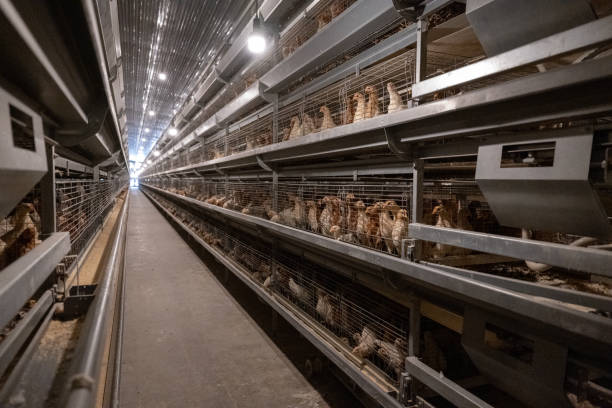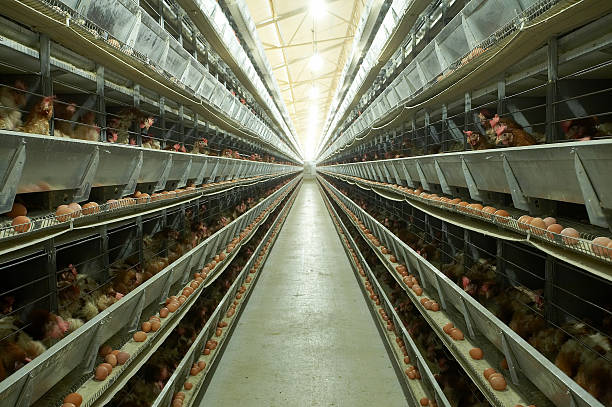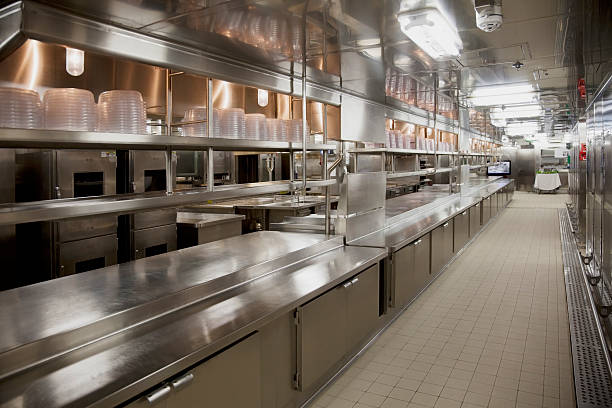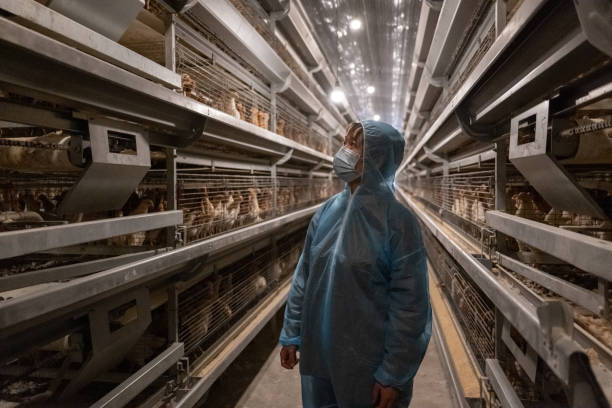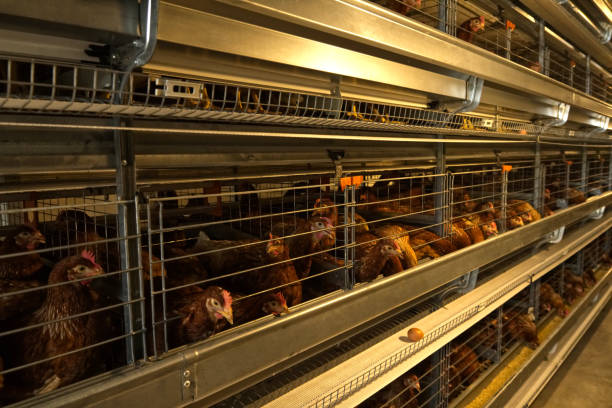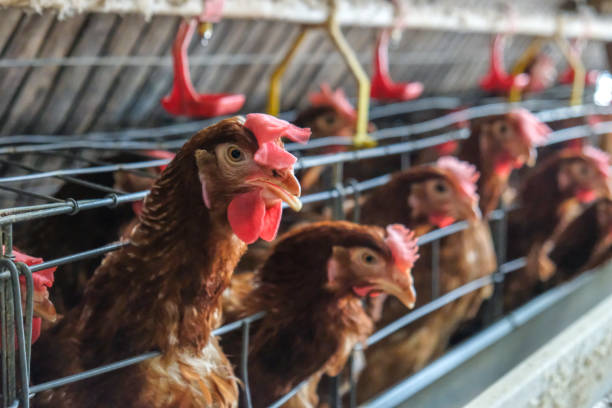Battery Cage Price Guide for African Poultry Farmers: Maximize Your Investment
Battery Cage Price Guide for African Poultry Farmers: Maximize Your Investment
Poultry farming in Africa is a rapidly growing sector, driven by increasing demand for affordable protein sources. For many African poultry farmers, battery cages offer a cost-effective and efficient way to manage larger flocks, optimize space, and improve egg production. However, the upfront cost of setting up a battery cage system can be a significant investment. Understanding the factors influencing battery cage prices and how to maximize your return on investment (ROI) is crucial for success. This comprehensive guide will walk you through the ins and outs of battery cage pricing, helping you make informed decisions and build a profitable poultry business.
What are Battery Cages and Why Choose Them?
Battery cages, also known as laying cages or poultry cages, are a housing system designed to accommodate multiple laying hens in individual or small group compartments. These cages are typically arranged in rows and tiers, maximizing the use of vertical space within a poultry house.
There are several compelling reasons why African poultry farmers choose battery cages:
Increased Egg Production: Battery cages allow for precise control over the environment, including temperature, lighting, and feeding. This controlled environment reduces stress on the hens and promotes consistent egg production.
Improved Hygiene and Disease Control: The wire mesh floors of battery cages allow droppings to fall through, minimizing contact between hens and waste. This reduces the risk of disease outbreaks and improves overall hygiene.
Space Efficiency: Battery cages enable farmers to house a larger number of birds in a smaller area compared to free-range or deep litter systems. This is particularly advantageous in areas where land is limited or expensive.
Reduced Labor Costs: Automated feeding, watering, and egg collection systems can significantly reduce the labor required to manage a large flock in battery cages.
Easier Monitoring and Management: Individual cages make it easier to monitor the health and productivity of each hen, allowing for early detection of problems and targeted interventions.
Factors Influencing Battery Cage Prices in Africa
The price of battery cages in Africa can vary considerably depending on several factors. Understanding these factors is essential for budgeting and comparing quotes from different suppliers.
Cage Material: The most common materials used for battery cages are galvanized steel and stainless steel. Galvanized steel is more affordable but may be susceptible to corrosion over time. Stainless steel is more durable and resistant to rust, making it a longer-lasting investment, albeit at a higher initial cost. Pay attention to the gauge (thickness) and quality of the steel, as this will directly impact the cage’s structural integrity and lifespan.
Cage Size and Capacity: Battery cages come in various sizes and capacities, typically housing 3 to 5 hens per cage. The price will increase with the cage size and the number of birds it can accommodate. Consider the space available in your poultry house and the desired flock size when selecting the appropriate cage size.
Tier System: Battery cages can be arranged in single, double, or multi-tier systems. Multi-tier systems maximize space utilization but may require more robust support structures and specialized equipment for feeding and egg collection. The price will increase with the number of tiers.
Automation Level: The level of automation significantly impacts the price of battery cages. Manual systems require farmers to manually feed, water, and collect eggs. Semi-automatic systems may include automated feeding or egg collection. Fully automated systems automate all three processes, reducing labor costs and improving efficiency. The higher the level of automation, the higher the initial investment.
Manufacturer and Brand: Reputable manufacturers and brands often offer higher quality cages with better durability and after-sales service. While these cages may be more expensive upfront, they can save you money in the long run by reducing maintenance costs and extending the cage’s lifespan.
Transportation Costs: Transportation costs can be a significant expense, especially for farmers in remote areas. Consider the distance between the supplier and your farm when evaluating quotes. Look for suppliers who offer competitive shipping rates or have local distribution centers.
Import Duties and Taxes: When importing battery cages, you may be subject to import duties and taxes. Factor these costs into your budget to avoid any surprises.
Installation Costs: Unless you plan to install the battery cages yourself, you will need to factor in installation costs. These costs will vary depending on the complexity of the system and the labor rates in your area.
Local Market Conditions: Prices can fluctuate depending on local market conditions, such as supply and demand, currency exchange rates, and government policies. Research the market in your area to get a sense of prevailing prices.
Price Ranges for Battery Cages in Africa (Estimates)
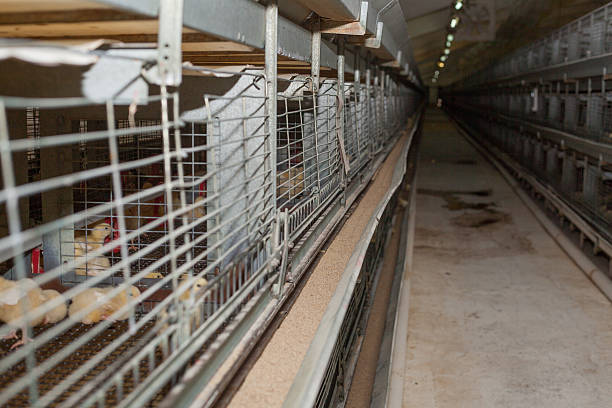
Providing exact prices for battery cages in Africa is challenging due to the variability of the factors discussed above. However, the following are estimated price ranges to provide a general idea:
Manual Battery Cages (per cage unit): $15 – $40. These are basic cages, usually housing 3-5 hens, with manual feeding, watering, and egg collection.
Semi-Automatic Battery Cages (per cage unit): $40 – $80. These cages may include automatic feeding or egg collection systems.
Fully Automatic Battery Cages (per cage unit): $80 – $150+. These are complete systems with automated feeding, watering, and egg collection. The price will vary significantly depending on the level of automation and the size of the system.
Note: These are just estimates. It is crucial to get quotes from multiple suppliers to compare prices and find the best deal for your specific needs.
Maximizing Your Investment in Battery Cages
Investing in battery cages is a significant decision, and it’s crucial to maximize your return on investment. Here are some strategies to help you do so:
Thorough Research and Planning: Before investing in battery cages, conduct thorough research to determine the best system for your needs and budget. Consider factors such as your flock size, available space, labor costs, and desired level of automation. Develop a detailed business plan that includes projected costs, revenues, and ROI.
Choose the Right Supplier: Select a reputable and reliable supplier with experience in providing battery cages to African poultry farmers. Look for suppliers who offer high-quality cages, competitive prices, and excellent after-sales service. Check their references and read online reviews to assess their reputation.
Prioritize Quality and Durability: While it may be tempting to opt for the cheapest option, prioritizing quality and durability is essential. High-quality cages will last longer, require less maintenance, and ultimately save you money in the long run.
Consider Automation: While automation increases the initial investment, it can significantly reduce labor costs and improve efficiency. Evaluate the potential savings in labor costs and the increased egg production to determine if automation is a worthwhile investment for your farm.
Proper Installation and Maintenance: Proper installation and regular maintenance are crucial for extending the lifespan of your battery cages. Follow the manufacturer’s instructions carefully during installation and establish a routine maintenance schedule to inspect and repair any damage.
Optimize Environmental Conditions: Maintaining optimal environmental conditions, such as temperature, humidity, and lighting, is essential for maximizing egg production and minimizing stress on the hens. Invest in climate control systems and lighting timers to create a comfortable and productive environment.
Implement a Sound Management System: A well-managed poultry farm is a profitable poultry farm. Implement a sound management system that includes proper feeding, watering, disease control, and record-keeping. Monitor the health and productivity of your hens closely and take corrective action promptly when needed.
Explore Financing Options: If you lack the capital to invest in battery cages upfront, explore financing options such as loans, grants, and leasing. Many financial institutions offer specialized financing programs for agricultural businesses.
Negotiate with Suppliers: Don’t be afraid to negotiate with suppliers to get the best possible price. Ask for discounts, compare quotes from different suppliers, and leverage your bargaining power to secure a favorable deal.
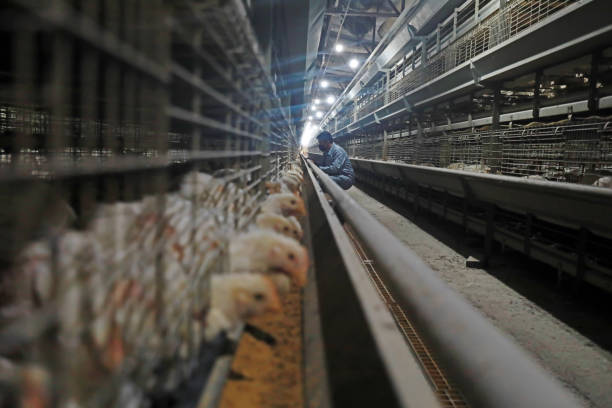
Specific Considerations for African Poultry Farmers
In addition to the general considerations discussed above, African poultry farmers should also consider the following specific factors:
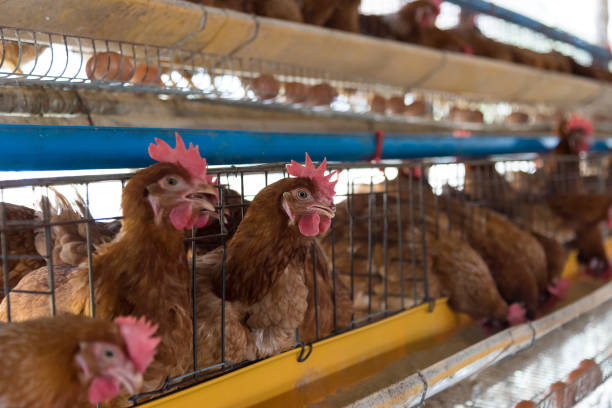
Climate: Africa has diverse climates, ranging from hot and humid to arid and semi-arid. Choose battery cages that are suitable for the climate in your region. Consider factors such as ventilation, insulation, and cooling systems.
Local Availability of Spare Parts: Ensure that spare parts for your battery cages are readily available in your area. This will minimize downtime and repair costs in the event of a breakdown.
Technical Support: Choose a supplier who offers reliable technical support. This is especially important if you are new to battery cage farming.
Electricity Supply: If you are using automated systems, ensure that you have a reliable electricity supply. Consider investing in a backup generator to mitigate the risk of power outages.
Water Supply: Adequate access to clean water is essential for poultry farming. Ensure that you have a reliable water source and that the water is of good quality.
Security: Protect your poultry farm from theft and vandalism by implementing appropriate security measures, such as fencing, lighting, and security personnel.
Finding Reliable Battery Cage Suppliers in Africa
Finding the right supplier is paramount when investing in battery cages. Here are some tips for identifying reliable suppliers in Africa:
Online Research: Start by conducting online research to identify potential suppliers. Use search engines like Google and industry-specific directories to find companies that sell battery cages in Africa.
Trade Shows and Exhibitions: Attend poultry trade shows and exhibitions in Africa. These events provide opportunities to meet with suppliers, see their products firsthand, and network with other poultry farmers.
Referrals and Recommendations: Ask for referrals and recommendations from other poultry farmers in your area. They can provide valuable insights and firsthand experiences with different suppliers.
Supplier Websites and Catalogs: Review the websites and catalogs of potential suppliers to learn more about their products, services, and pricing.
Request Quotes: Request quotes from multiple suppliers to compare prices and terms. Be sure to provide detailed specifications for your requirements.
Visit Supplier Facilities: If possible, visit the facilities of potential suppliers to assess their operations and quality control processes.
Check Certifications: Verify that the supplier has any relevant certifications, such as ISO 9001, which indicates a commitment to quality management.
Conclusion
Investing in battery cages can be a profitable venture for African poultry farmers. By understanding the factors influencing battery cage prices, maximizing your investment, and choosing the right supplier, you can build a successful and sustainable poultry business. Remember to prioritize quality, durability, and automation to optimize egg production, reduce labor costs, and improve overall efficiency. With careful planning and diligent management, battery cages can contribute significantly to the growth and profitability of your poultry farm. Good luck!



